News
-
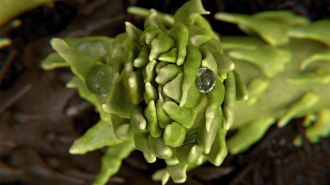 Life
LifeA 407-million-year-old plant’s leaves skipped the usual Fibonacci spirals
Most land plants living today have spiral patterns involving the famous Fibonacci sequence of numbers. But an extinct, ancient plant did not.
By Skyler Ware -
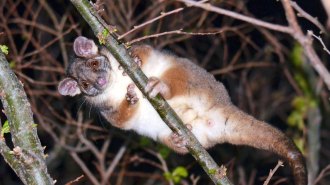 Life
LifeIn Australia, mosquitoes and possums may spread a flesh-eating disease
Field surveys show that genetically identical bacteria responsible for a skin disease called Buruli ulcer appear in mosquitos, possums and people.
-
 Environment
EnvironmentDust from a shrinking Great Salt Lake may be accelerating Utah’s snowmelt
About a quarter of the record-breaking, snow-melting dust on the Wasatch Mountains in 2022 may have come from exposed lakebed at Great Salt Lake.
-
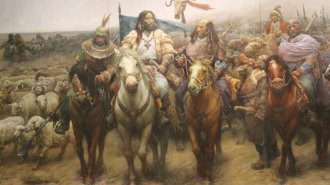 Archaeology
ArchaeologyHow Asia’s first nomadic empire broke the rules of imperial expansion
New studies reveal clues to how mobile rulers assembled a multiethnic empire of herders known as the Xiongnu more than 2,000 years ago.
By Bruce Bower -
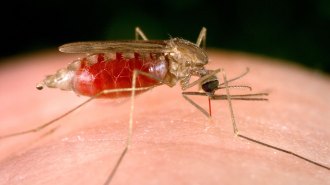 Health & Medicine
Health & MedicineFour things to know about malaria cases in the United States
Five people have picked up malaria in the United States without traveling abroad. The risk of contracting the disease remains extremely low.
-
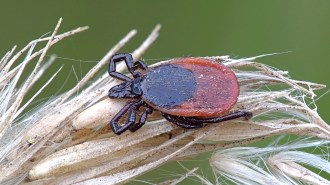 Animals
AnimalsStatic electricity can pull ticks on to their hosts
Ticks brought near objects with a static charge frequently get pulled to those surfaces, a new study finds, suggesting one way the bugs find hosts.
By Soumya Sagar -
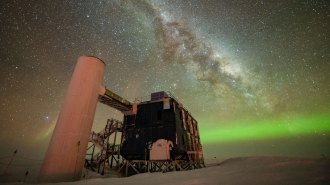 Physics
PhysicsNeutrinos offer a new view of the Milky Way
Physicists turned to AI to help map out the newfound origins of ghostly neutrino particles coming from deep in the Milky Way.
-
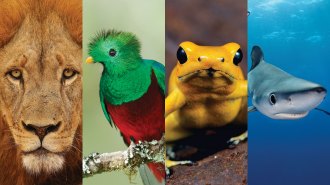 Science & Society
Science & SocietyHumans exploit about one-third of wild vertebrate species
An analysis of nearly 47,000 vertebrate animal species reveals that using them for food, medicine or the pet trade is helping push some toward extinction.
By Sid Perkins -
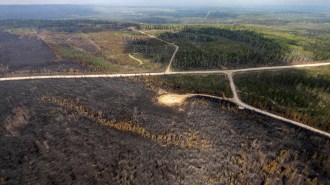 Climate
ClimateThe snow forest of North America may be about to shrink
From 2000 to 2019, the boreal forest’s northern boundary didn’t move while southern tree cover thinned due to climate change, wildfires and logging.
By Nikk Ogasa -
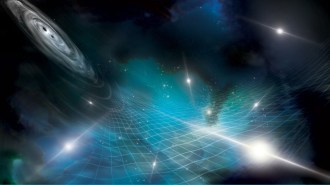 Astronomy
AstronomyA newfound gravitational wave ‘hum’ may be from the universe’s biggest black holes
Scientists reported evidence for a new class of gravitational waves, likely created by merging supermassive black holes.
-
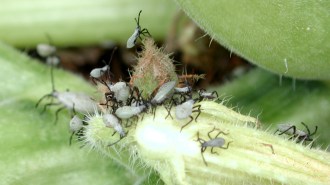 Life
LifeYoung squash bugs seek out adults’ poop for an essential microbe
Squash bug nymphs don’t rely on their parents to pick up a bacterium they’d die without. They find it on their own.
-
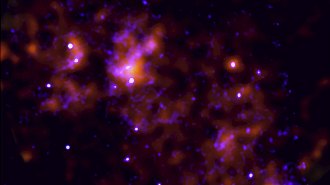 Astronomy
Astronomy200 years ago, the Milky Way’s central black hole briefly awoke
The black hole is thought to be mostly quiet and dim. Now, glowing cosmic clouds have revealed the behemoth’s last flare.